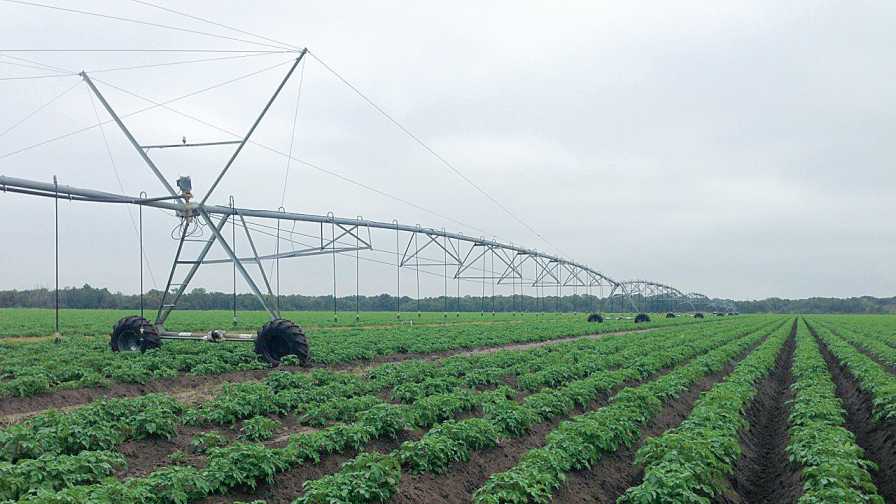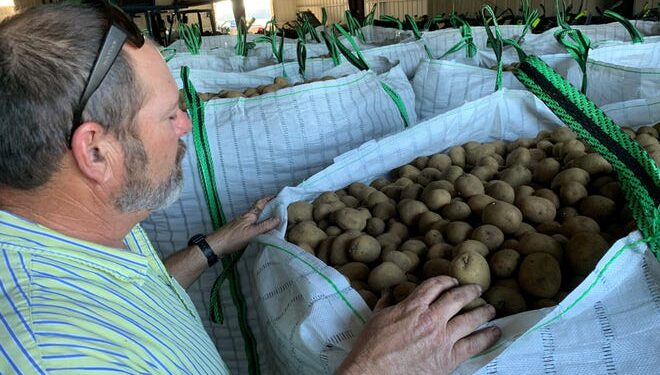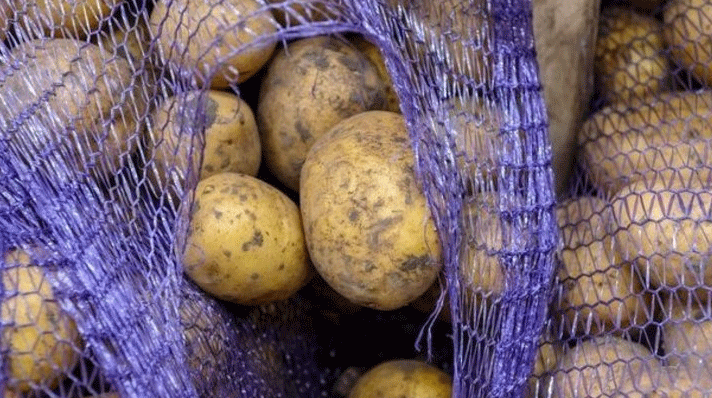Potatoes are one of the two main staple crops in Flagler County and farmers are busy preparing the ground and planting the seed. Seed potatoes are smaller versions of harvested potatoes with lots of eyes. Prior to planting, seed potatoes are cut using a mechanical slicer, and every piece of seed that contains an eye will grow a new plant.
I spoke with a couple potato growers in Flagler County and they have some concerns about the upcoming season. Billy Revels with Flagler Farms said they are planting only 300 acres of potatoes this year (200 acres of chip potatoes and 100 acres of tablestock) compared to nearly 700 acres they grew last year. They still have the land, but the independent contracts have been reduced or eliminated. Commercial farmers do not generally plant crops that they haven’t already sold. And, like everything else, fertilizer prices are significantly higher than last year, so potato farmers will be much more conservative on their planted acreage.
According to Bruce Matthews at Diamond R Fertilizer, the cost of nitrogen is three times higher than this time last year and the costs of phosphorus and potassium are 2.5 times higher. Shipping and freight rates have also increased. The availability of trucks is another major concern both for the seed shipments and for the harvested product.

Michael Mathis with Tidewater Farms wonders if they will have any profit at the end of the season with all the increased input costs necessary to grow the crop. He is growing several different varieties of tablestock potatoes to diversify his market opportunities, including reds, whites and yellows. “Red Lasoda” is the predominant tablestock variety grown in the Tri-County Agriculture Area, but Michael plans to add a few yellow potatoes to the mix, including “Colombo” and “Satina”. “Colombo” is an early maturing table variety that was bred in the Netherlands and it stores exceptionally well, with a keeping quality of 95%. “Satina” is a smooth-skinned potato with a golden-yellow flesh color that has a buttery taste when cooked.
Farmers work hard every day, not for fame or fortune, but to put food on our tables. They endure hardships that most cannot even imagine. I challenge everyone reading this article to go out of your way to thank a local farmer and tell them how much you appreciate them. Their skill set and expertise will become increasingly important as we face the multitude of challenges in this upcoming year.

- Many Flagler County residents think of potatoes — if they think of them at all — as something for the dinner table or part of the county seal.
- But for Stan Robertson and the six or seven other Flagler County potato farmers, the simple spud is a cash crop and the lifeblood of agriculture on the western side of the county. This time of year it is especially important, with crews out early every day to harvest the spring crop.
- The fruits of that labor — the end of a process that began in early January when seed potatoes were planted and won’t finally end until mid-June — will be celebrated Saturday in Bunnell at the Fourth Annual Potato Festival.
- But Robertson won’t have time to celebrate. The hard work of harvest time is something Robertson, who operates Robertson Brothers Farm with his brother, Kirk, and cousin Greg, is used to.
“I grew up on this farm,” he said of the 285-acre spread in western Flagler County. “I worked when I was a young child. I rode a potato planter when I was 11 years old.”







